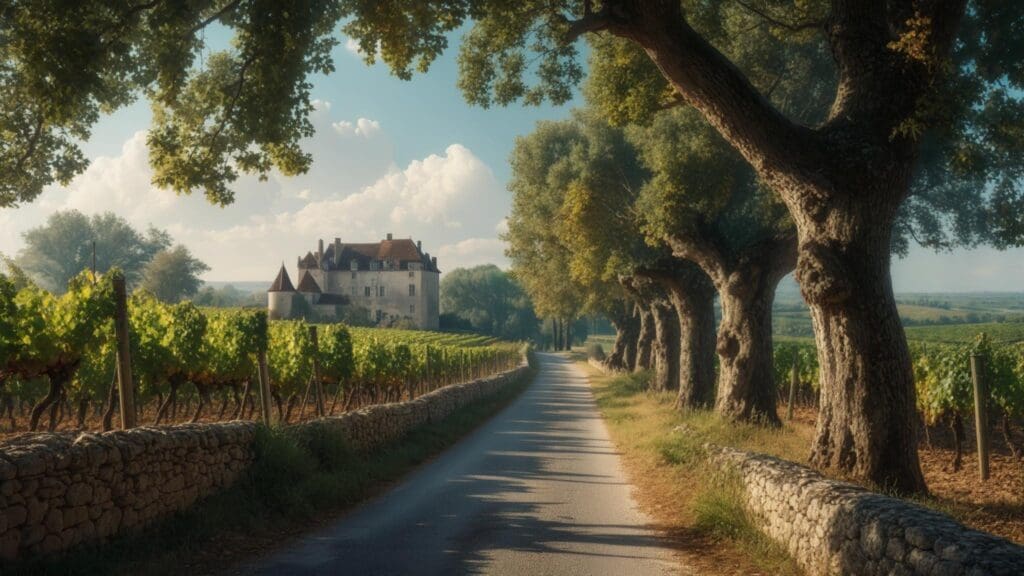France welcomed nearly 90 million tourists in 2024, making it the world’s most visited country for over 30 years running (source). I remember staring at that number when I first started planning my own French adventure, feeling completely overwhelmed by the sheer magnitude of choices ahead of me. How do you compete with nearly 90 million other travelers for the perfect experience?
Here’s the thing – you don’t compete. You plan smarter. After diving deep into France’s diverse regions, seasonal patterns, and travel logistics, I’ve discovered that the secret isn’t finding the most popular France itinerary. It’s finding the right one for your specific travel style, timeline, and dreams.
Make every detail count—start organizing your French adventure with our Vacation Planner.
Quick Resources:
• Plan your dream trip with our Vacation Planner
• Discover your perfect wedding style with the free AI Color Analysis Quiz
• Need a stress-free planning partner? Use our AI Wedding Planner
• Explore all of our Wedding Tools for your next big event or trip
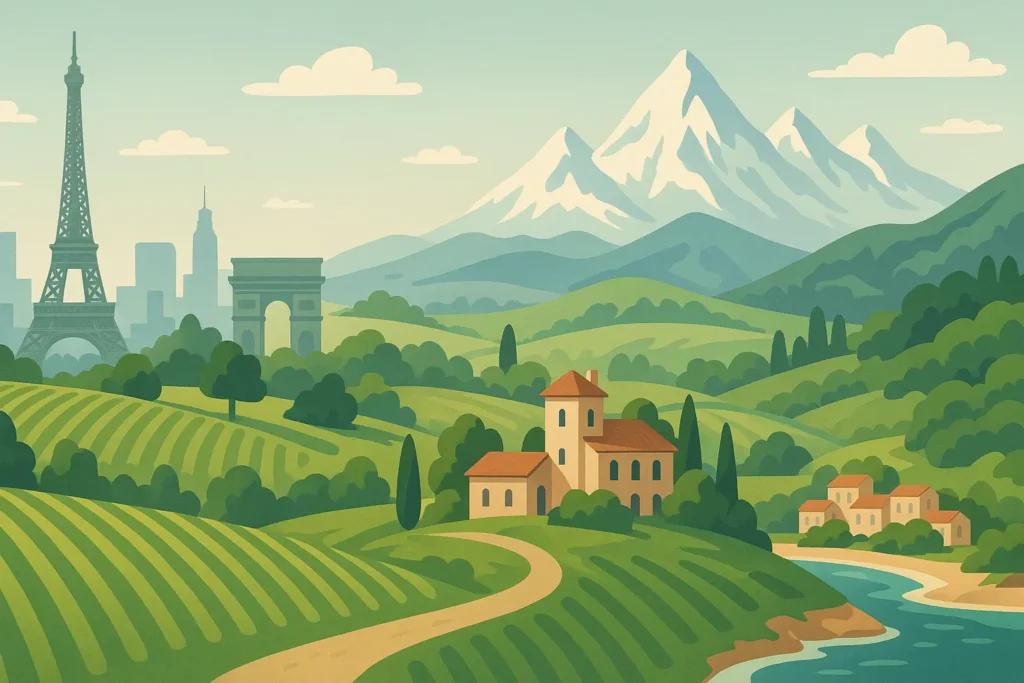
TL;DR
- Duration matters: 4-7 days work for focused experiences, 8-10 days hit the sweet spot for first-timers, while 11+ days allow deeper cultural immersion
- Trust me, when you visit makes a huge difference – shoulder seasons (April-May, September-October) offer the best balance of weather and crowds
- Here’s what you’re looking at money-wise: luxury experiences run $500-800+ per day, mid-range options cost $200-400 daily, while budget-conscious travelers can manage on $75-150
- Here’s the thing about getting around France – high-speed trains excel for city connections, rental cars unlock rural regions, and guided tours eliminate logistics stress
- Regional specialties define each itinerary – wine regions for connoisseurs, coastal areas for relaxation, mountain regions for adventure, and cultural circuits for history buffs
- Group dynamics influence everything from accommodation choices to activity pacing – solo travelers need different planning than families or couples
- Language barriers are minimal in tourist areas but increase in rural regions, making local guides valuable for authentic experiences
Key Considerations for Choosing Your France Itinerary
Look, I get it – planning a trip to France can feel overwhelming. You’ve got 25 regions, thousands of châteaux, and everyone telling you their way is the ‘right’ way. Here’s my advice: pick 2-3 things you absolutely can’t miss, then leave room for wandering. Understanding your personal travel preferences, constraints, and goals will help you select the perfect French adventure.
Duration and Timing Strategy
Trip length fundamentally shapes your French experience. Short trips of 4-7 days demand laser focus on specific regions or themes – you’ll sacrifice breadth for depth, and that’s totally fine. The classic Paris & Versailles combination works perfectly here, giving you iconic experiences without the exhaustion of constant movement.
Your perfect France itinerary depends heavily on how much time you can dedicate to exploration. Just as planning the perfect wedding requires careful timing and coordination, crafting your French adventure needs strategic pacing that matches your available vacation days.
Stay on schedule and stress-free—use our AI Wedding Planner to design perfectly timed travel days (it works beautifully for trips too!).
| Trip Duration | Ideal For | Regions Covered | Pace | Best Itinerary Type |
|---|---|---|---|---|
| 4-7 days | First-time visitors, limited time | 1-2 regions | Fast-paced | City focus or single region |
| 8-10 days | Balanced exploration | 2-3 regions | Moderate | Greatest hits or regional combo |
| 11-14 days | Deep immersion | 3-4 regions | Relaxed | Thematic or comprehensive |
| 15+ days | Extended exploration | 4+ regions | Very relaxed | Custom multi-region |
Medium-length adventures spanning 8-10 days hit the sweet spot for first-time visitors. You can realistically cover 2-3 distinct regions, experience different aspects of French culture, and still have time for spontaneous discoveries. This timeframe allows for both must-see attractions and those magical unplanned moments that often become trip highlights.
Extended journeys of 11+ days open doors to deeper cultural immersion. You can adopt a slower pace, revisit favorite spots, and explore off-the-beaten-path destinations that shorter trips simply can’t accommodate.
Get expert-level trip structure guidance with our Vacation Planner to make every travel day unforgettable.
Here’s what they don’t tell you about seasonal timing: Summer brings festivals, long daylight hours, and perfect weather for outdoor activities, but you’ll compete with peak crowds and premium pricing. Let’s be honest – Paris in August is hot, crowded, and expensive. But those long summer evenings? Totally worth it. Spring and fall offer ideal weather conditions with manageable tourist numbers, while winter provides unique experiences but some attractions may have limited hours.
Budget and Travel Style Alignment
Your financial comfort zone directly influences accommodation choices, dining experiences, and activity options. Luxury travelers can indulge in château hotels, Michelin-starred dining, and private guided experiences, typically budgeting $500-800+ per person daily.
Sarah’s Mid-Range Provence Week: Sarah planned a 7-day Provence trip on a $250/day budget. She stayed in boutique B&Bs ($120/night), enjoyed local bistro lunches ($25-35), splurged on one Michelin dinner ($150), took small-group wine tours ($85/person), and used rental car for village hopping. Her total came to $1,680 for an authentic, comfortable experience without luxury pricing.
Mid-range travelers find excellent value in boutique hotels, local bistros, and small-group tours, with daily costs ranging from $200-400 per person. This budget level still provides comfortable accommodations and memorable experiences without breaking the bank.
Budget-conscious adventurers can absolutely experience France’s magic through hostels, vacation rentals, self-catering, and public transportation, managing on $75-150 daily per person. The key lies in prioritizing experiences over luxury amenities.
Find the balance between comfort and cost—our Vacation Planner helps you create a travel budget that works for you.
Interest Areas and Activity Preferences
Cultural enthusiasts gravitate toward museum-heavy France itinerary options, architectural tours, and historical site exploration. Art lovers specifically seek out painter trails, sculpture gardens, and world-class galleries that showcase France’s artistic heritage.
Culinary adventurers prioritize wine regions, cooking classes, market visits, and restaurant experiences that highlight France’s gastronomic excellence. These travelers often plan entire trips around harvest seasons or specific regional specialties.
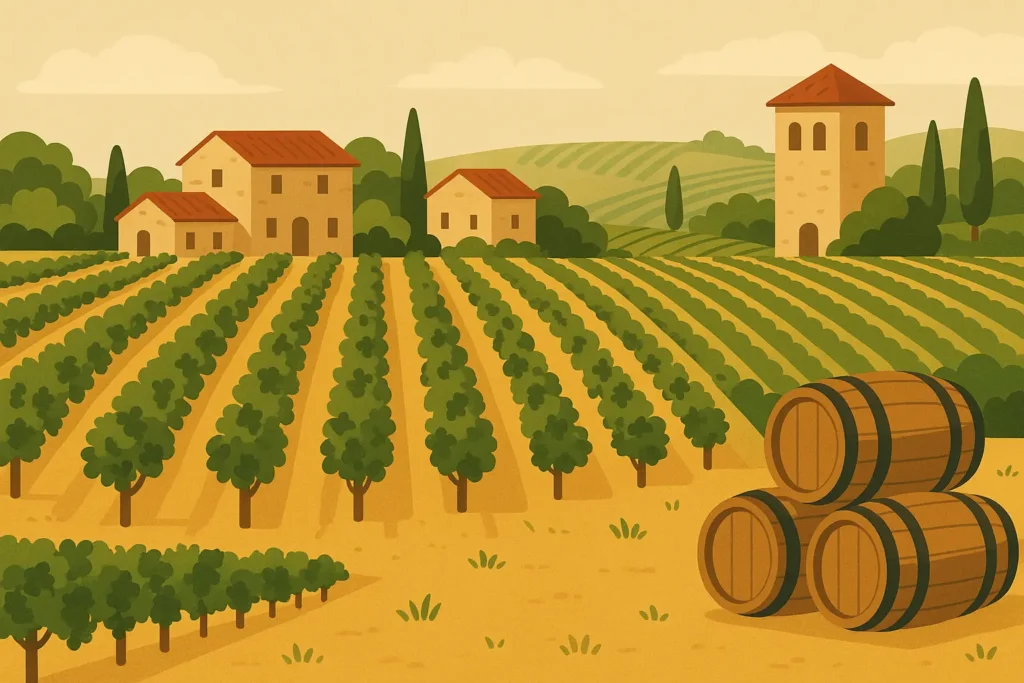
Outdoor enthusiasts need itineraries emphasizing hiking, cycling, beach time, or seasonal activities. These trips require different packing considerations and fitness level assessments.
Urban explorers prefer city-based France itinerary plans with excellent public transportation, while countryside lovers seek rural immersion with rental car flexibility for accessing smaller villages and hidden gems.
Group Dynamics and Logistics
Solo travelers benefit from structured itineraries with built-in social opportunities through tours, classes, or group activities. They also have maximum flexibility for spontaneous plan changes.
Couples often seek romantic settings, intimate experiences, and shared adventures that create lasting memories together. Privacy and special touches become more important than group activities.
Planning a romantic getaway or honeymoon? Let our AI Wedding Planner help you organize it seamlessly.
Families need kid-friendly accommodations, age-appropriate activities, and realistic pacing that accounts for shorter attention spans and different energy levels throughout the day. Pro tip: pack snacks. French meal times don’t align with hangry toddler schedules.
Friend groups require itineraries balancing varied interests, group-friendly accommodations, and activities that work well for multiple people with potentially different preferences.
Multi-generational groups need careful consideration of mobility limitations, varied interests across age groups, and accommodations that work for everyone from grandparents to grandchildren. Multi-generational trips are beautiful in theory, exhausting in practice. Lower your expectations and you’ll actually have fun.
Classic First-Time Visitor Itineraries
These foundational itineraries provide solid introductions to France’s most iconic destinations and experiences. If this is your first time in France, these routes won’t overwhelm you while ensuring you don’t miss the country’s essential highlights.
1. Paris & Versailles Classic (7 Days)
If this is your first taste of French culture, this France itinerary balances iconic sightseeing with neighborhood exploration without making your head spin. You’ll spend your initial days mastering Paris’s Right Bank, home to the Louvre, Tuileries Gardens, and luxury shopping districts.
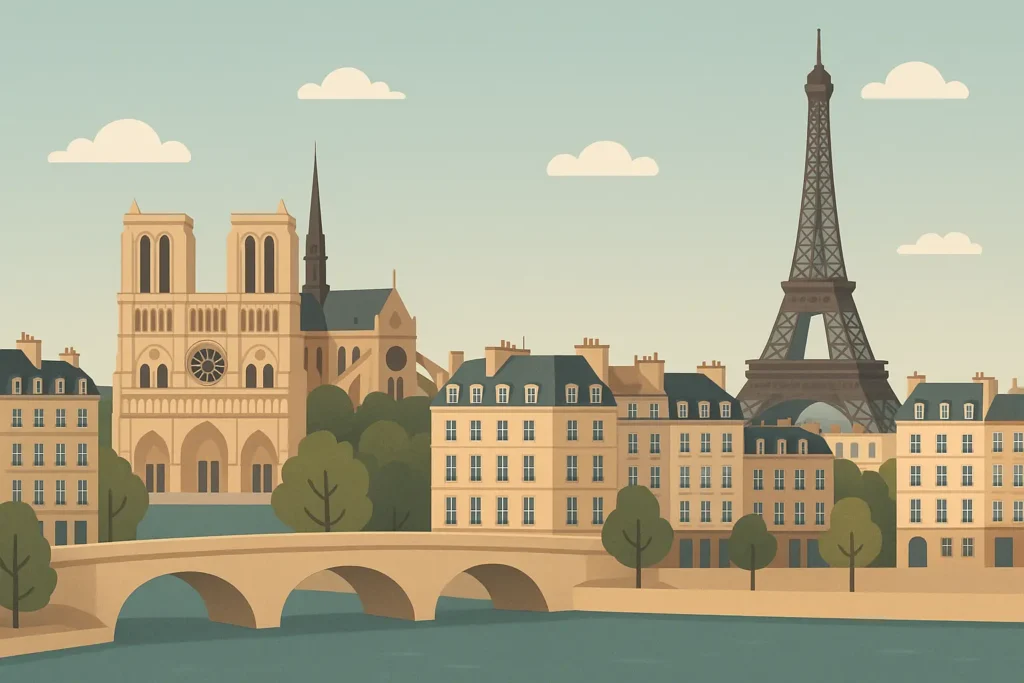
Days three and four shift focus to the Left Bank’s intellectual atmosphere, featuring the Latin Quarter’s winding streets, Saint-Germain’s café culture, and the artistic Montmartre district. The mid-week Versailles excursion provides historical context and a break from urban intensity.
Here’s some real talk: Versailles is stunning, but it’s also a zoo. Go early or you’ll spend more time looking at other tourists than at the palace. Book your tickets online ahead of time – trust me on this one.
Your final days allow for personal interests – whether that’s additional museum time, shopping along the Champs-Élysées, or discovering hidden neighborhood gems. The seven-day structure provides enough time to develop Paris rhythms without feeling rushed.
Transportation relies primarily on the excellent Metro system, with comfortable walking distances between major attractions. Budget around €150-200 daily per person for mid-range accommodations, meals, and attraction entries.
2. France Greatest Hits (10 Days)
This trip gives you a real taste of how different France’s regions actually are through four distinct regions. Your Parisian foundation (days 1-4) covers essential landmarks while building confidence with French customs and language basics. You don’t need to speak perfect French (though ‘bonjour’ and ‘merci’ go a long way).
The Loire Valley segment (days 5-6) introduces you to royal French history through magnificent châteaux visits. Chambord’s Renaissance architecture and Chenonceau’s romantic river setting provide perfect introductions to France’s royal heritage. My biggest France mistake? Trying to see 5 châteaux in one day. By château #3, they all looked the same. Now I recommend max 2 per day.
Provence (days 7-8) shifts the pace entirely, immersing you in lavender fields, hilltop villages, and Mediterranean culture. The contrast with northern France becomes immediately apparent through architecture, cuisine, and lifestyle differences.
The Martinez Family’s Greatest Hits Adventure: The Martinez family of four tackled this France itinerary in September. They used a 10-day France Rail Pass ($890 for the family), stayed in family rooms at mid-range hotels, and mixed self-guided exploration with one guided tour per region. Their highlight was discovering a local harvest festival in Provence that wasn’t on their planned itinerary, proving the value of flexible scheduling.
Your French Riviera finale (days 9-10) combines Nice’s artistic heritage with Monaco’s luxury, ending your journey on the glamorous Mediterranean coast that has attracted visitors for centuries.
High-speed TGV trains handle major connections efficiently, while regional transportation varies by area. Budget €300-450 daily per person for this mid-to-upper range experience including accommodations, meals, transportation, and attraction entries.
3. Paris to Normandy Explorer (8 Days)
History enthusiasts find this France itinerary particularly compelling, combining urban cultural experiences with profound historical significance. Your Paris foundation (days 1-4) establishes French cultural context before transitioning to Normandy’s dramatic coastline and wartime history.
Bayeux serves as your historical base, providing access to the famous tapestry and D-Day landing beaches. The emotional impact of Omaha Beach, combined with the American Cemetery’s solemnity, creates powerful historical connections.
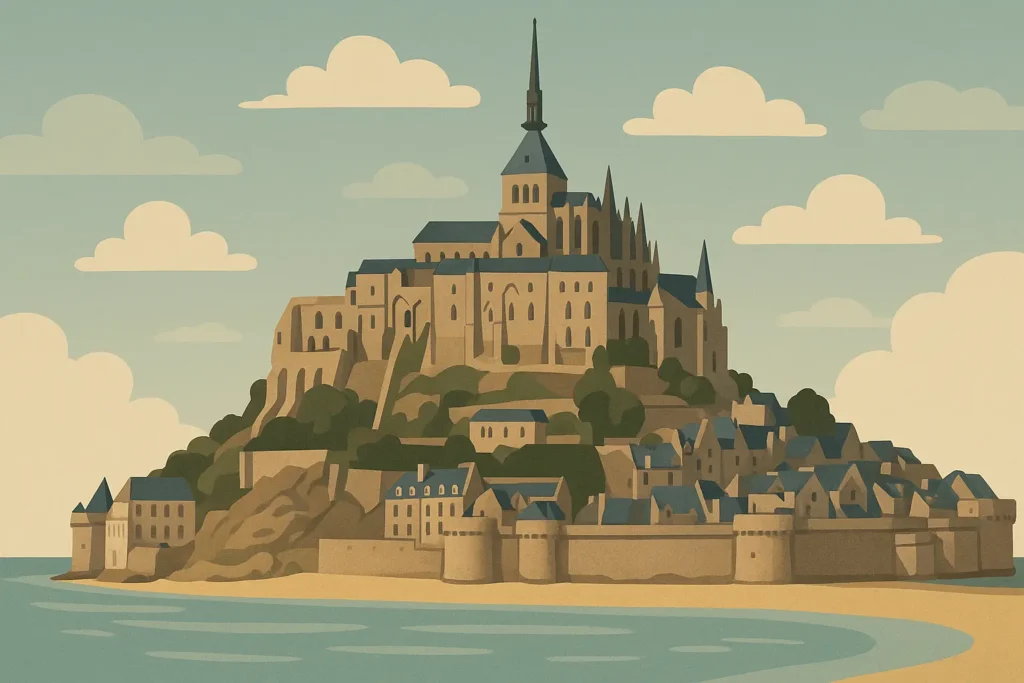
Mont-Saint-Michel represents medieval France at its most dramatic, with the abbey’s Gothic spires rising from tidal flats creating an unforgettable sil
Mont-Saint-Michel represents medieval France at its most dramatic, with the abbey’s Gothic spires rising from tidal flats creating an unforgettable silhouette. Timing your visit with tide schedules enhances the mystical experience – check the tide charts and plan accordingly.
Rouen’s Gothic cathedral and medieval streets provide architectural contrast, while its Joan of Arc connections add historical depth. The city’s compact size makes it perfect for leisurely exploration.
Transportation combines Paris’s excellent public transit with rental car flexibility for Normandy’s rural sites. Fair warning: driving in French cities is not for the faint of heart. Seriously consider the train. Budget €200-350 daily per person depending on accommodation choices and dining preferences.
4. Romantic France Honeymoon (12 Days)
Designed for couples celebrating special occasions, this luxury France itinerary prioritizes intimate experiences and romantic settings. Paris (days 1-4) features five-star hotels, private museum tours, and Michelin-starred dining that sets an elegant tone.
The Champagne region (days 5-6) provides the perfect romantic interlude with prestigious house visits, private tastings, and luxury château accommodations. Pro tip: those fancy Champagne houses? Book ahead or you’ll be disappointed. The rolling vineyard landscapes create picture-perfect backdrops for couple photography.
Burgundy (days 7-9) deepens the wine experience while introducing France’s gastronomic heartland. Private vineyard tours, cooking classes with renowned chefs, and intimate wine cellars create shared memories.
Planning the perfect romantic getaway requires attention to special details and intimate moments that create lasting memories, much like planning the perfect honeymoon destination.
Provence (days 10-12) concludes with lavender fields, hilltop villages, and luxury spa treatments. The Mediterranean lifestyle’s relaxed pace provides perfect contrast to earlier regions’ structured activities.
Design your dream honeymoon itinerary with our Elopement Planner for the ultimate romantic escape.
Accommodations emphasize luxury properties, often historic châteaux or boutique hotels with special romantic amenities. Private transportation, exclusive experiences, and fine dining push daily budgets to €500-800+ per person, but create truly unforgettable experiences.
Regional Deep-Dive Itineraries
These specialized itineraries focus intensively on single French regions, allowing travelers to develop deep appreciation for local culture, cuisine, and landscapes. Rather than rushing through multiple areas, these routes provide immersive experiences that reveal each region’s unique character and authentic local life.
5. Provence Immersion (8 Days)
Provence rewards slow travel and deep exploration rather than rushed sightseeing. Avignon serves as your historical base, with the imposing Papal Palace providing context for the region’s medieval importance. The city’s compact center makes evening strolls particularly pleasant.
Aix-en-Provence offers a different perspective, with its elegant boulevards, artistic heritage, and vibrant market culture. Cézanne’s studio and the Cours Mirabeau’s café scene provide perfect introductions to Provençal lifestyle.
The Luberon villages represent Provence’s postcard-perfect imagery. Gordes perches dramatically on its hilltop, while Roussillon’s ochre cliffs create stunning photographic opportunities. Isle-sur-la-Sorgue’s antique markets and waterways add unique character.

Here’s what Instagram doesn’t tell you: that perfect lavender field photo? You’ll need to wake up at 5 AM and drive 45 minutes from your hotel to get it. Lavender blooms peak in June and July, creating purple landscapes that define many visitors’ Provence dreams. However, spring and fall offer pleasant weather without summer’s intense heat and crowds.
I’ll never forget my first morning in a Provence village, drinking coffee while watching locals set up the market. It wasn’t on any itinerary, but it became my favorite memory.
Activities emphasize local culture: morning market visits, afternoon wine tastings, cooking classes featuring regional specialties, and hiking in the Luberon’s rolling hills. Budget €200-350 daily per person for comfortable accommodations and authentic experiences.
6. Loire Valley Château Circuit (6 Days)
The Loire Valley’s château concentration makes it perfect for focused exploration. Rental car transportation provides essential flexibility for accessing properties scattered across the valley’s 280-kilometer length.
Chambord represents Renaissance architecture at its most ambitious, with its distinctive double-helix staircase and elaborate roofline creating an unforgettable silhouette. The surrounding forest adds natural beauty to architectural splendor.
Chenonceau’s romantic river setting and feminine history create entirely different moods. The château’s gallery spanning the Cher River provides unique photographic opportunities, while its gardens showcase French formal landscaping.
Villandry focuses specifically on garden artistry, with elaborate geometric patterns and seasonal plantings creating living artwork. The château itself takes secondary importance to these horticultural masterpieces.
Amboise combines royal history with Leonardo da Vinci connections, while Azay-le-Rideau showcases early Renaissance elegance reflected in its moat waters.
Each château requires 2-3 hours for thorough exploration, making 1-2 visits per day realistic without fatigue. Spring through fall provides optimal weather for garden appreciation, while winter visits offer intimate interior focus.
Budget €150-250 daily per person including comfortable accommodations, château entries, and regional dining experiences.
7. Alsace Wine Route Adventure (7 Days)
Alsace’s unique cultural position creates fascinating contrasts between French and German influences. Strasbourg provides your cultural foundation, with its Gothic cathedral and European Parliament adding political significance to historical charm.
Colmar represents Alsace’s fairy-tale imagery perfectly, with half-timbered houses reflecting in canal waters creating postcard scenes. The town’s compact size makes walking tours particularly enjoyable, while its wine bars offer excellent regional tastings.
The Route des Vins connects picturesque villages through vineyard landscapes. Riquewihr’s medieval walls enclose wine cellars and tasting rooms, while Ribeauvillé’s three castles overlook terraced vineyards producing exceptional Rieslings.
Wine tasting sounds glamorous until you’re tipsy at 11 AM. Pace yourself and eat that bread they give you. Alsace’s unique grape varieties (Riesling, Gewürztraminer, Pinot Gris) require different appreciation techniques than other French regions. Many producers offer English-language tours explaining terroir differences.
Christmas markets (December) transform villages into winter wonderlands with mulled wine and artisan crafts. Harvest season (September-October) offers vineyard participation and fresh wine tastings.
Transportation combines train connections between major towns with local buses or rental cars for vineyard access. Budget €180-280 daily per person for comfortable accommodations and comprehensive wine experiences.
8. Brittany Coastal Discovery (9 Days)
Brittany’s Celtic heritage creates a distinctly different French experience. Saint-Malo’s walled city provides dramatic coastal introduction, with rampart walks offering panoramic ocean views and tidal pool exploration at low tide.
Mont-Saint-Michel, while technically in Normandy, serves as Brittany’s gateway, with its abbey rising from tidal flats creating one of France’s most iconic silhouettes. Timing visits with tide schedules enhances the mystical experience.
Carnac’s prehistoric alignments represent Europe’s most significant megalithic site, with over 3,000 standing stones creating mysterious patterns across the landscape. The accompanying museum provides archaeological context.
Quimper showcases Breton culture through its Gothic cathedral, traditional pottery, and Celtic festivals. The city’s compact center makes cultural exploration particularly pleasant.
Island excursions add maritime adventure. Belle-Île offers dramatic cliffs and artistic heritage, while smaller islands provide intimate coastal experiences accessible by ferry.
Activities emphasize outdoor exploration: coastal hiking along the GR34 trail, island hopping, prehistoric site visits, and fresh seafood dining. The region’s changeable weather requires flexible planning and appropriate gear.
Budget €160-240 daily per person for comfortable accommodations, transportation, and regional experiences including ferry costs for island visits.
9. French Alps Adventure (10 Days)
The French Alps offer year-round adventure opportunities with seasonal activity variations. Summer focus emphasizes hiking, mountain biking, and alpine lake exploration, while winter transforms the region into world-class skiing terrain.
Chamonix provides the ultimate Alpine base, with Mont Blanc’s dramatic presence dominating the skyline. Cable car access opens high-altitude hiking without technical climbing requirements, while the town’s mountaineering heritage adds cultural depth.
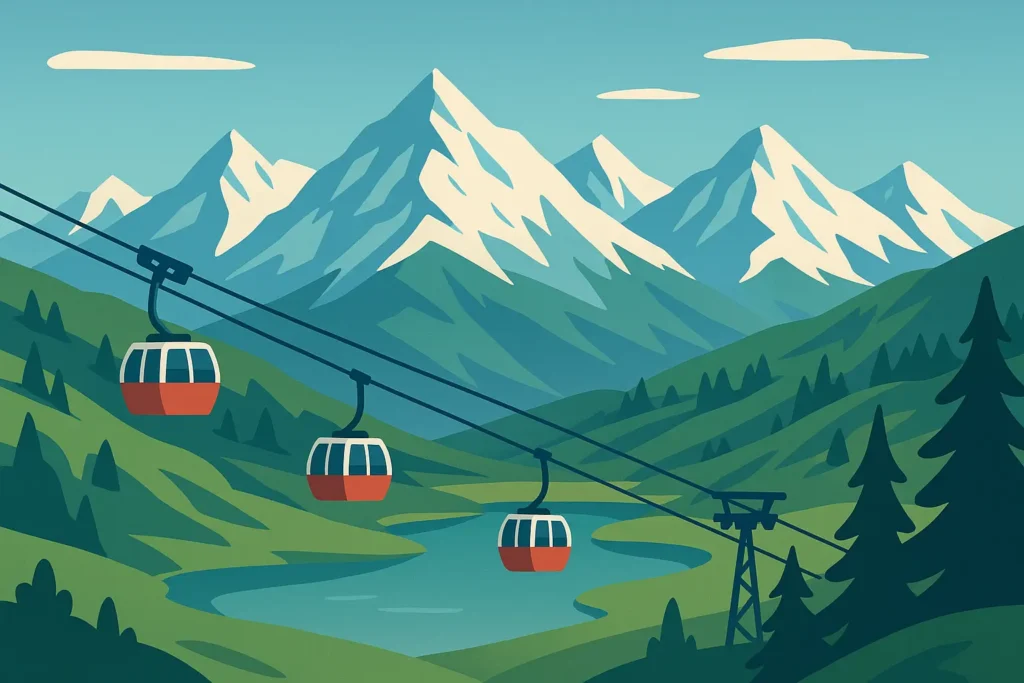
Annecy combines Alpine scenery with lakeside relaxation. The medieval old town’s canals earn it “Venice of the Alps” comparisons, while Lake Annecy’s crystal-clear waters provide swimming, boating, and cycling opportunities.
Grenoble offers urban Alpine culture with excellent museum collections and cable car access to surrounding peaks. The city serves as gateway to multiple valley systems offering varied hiking difficulties.
Rental car transportation becomes essential for accessing trailheads, mountain villages, and scenic drives that define Alpine experiences. Mountain weather changes rapidly, requiring flexible itinerary planning and appropriate gear.
Activities range from gentle lake walks to challenging mountain ascents. Via ferrata routes provide assisted climbing experiences, while mountain huts offer overnight hiking opportunities for adventurous travelers.
Budget €200-320 daily per person including mountain accommodations, cable car access, equipment rentals, and hearty Alpine dining.
Culinary & Wine-Focused Itineraries
These specialized itineraries center entirely around France’s legendary culinary and wine heritage, providing immersive experiences in the country’s most celebrated gastronomic regions. From Burgundy’s prestigious vineyards to Lyon’s traditional bouchons, these routes offer deep dives into French food culture through tastings, cooking classes, market visits, and producer meetings.
10. Burgundy Wine Pilgrimage (6 Days)
Burgundy wine is incredible, but don’t stress if you can’t tell the difference between a grand cru and premier cru – just drink what you like. Burgundy represents the pinnacle of terroir expression, where individual vineyard plots produce distinctly different wines despite proximity. Dijon serves as your cultural base, with its ducal palace and mustard heritage providing historical context for the region’s wine development.
Beaune functions as Burgundy’s wine capital, with the famous Hospices and its colorful tile roof housing centuries of winemaking history. The town’s numerous wine shops and tasting rooms provide excellent introduction to regional producers.
| Wine Region | Signature Grapes | Best Season | Daily Budget | Must-Visit Producers |
|---|---|---|---|---|
| Burgundy | Pinot Noir, Chardonnay | Sept-Oct | €250-400 | Domaine de la Romanée-Conti, Louis Jadot |
| Champagne | Chardonnay, Pinot Noir, Pinot Meunier | Year-round | €400-600+ | Moët & Chandon, Veuve Clicquot |
| Bordeaux | Cabernet Sauvignon, Merlot | Sept-Oct | €280-450 | Château Margaux, Pichon Baron |
| Alsace | Riesling, Gewürztraminer | Sept-Dec | €180-280 | Trimbach, Hugel & Fils |
The Côte d’Or’s golden slope contains the world’s most expensive vineyard real estate. Visits to legendary domaines reveal the passion and precision required for exceptional Pinot Noir and Chardonnay production.
Chablis represents Burgundy’s northern expression, where Kimmeridgian soil creates mineral-driven Chardonnays completely different from Côte d’Or expressions. The contrast illustrates terroir’s profound impact on wine character.
Wine tasting etiquette in France is way more relaxed than you think. Just don’t wear strong perfume and you’re good. Harvest season (September) offers participation opportunities, while spring provides ideal weather for vineyard walks and cellar visits. Budget €250-400 daily per person for quality accommodations and comprehensive wine experiences.
11. Champagne Region Luxury (5 Days)
Champagne’s prestige demands luxury treatment throughout your visit. Reims serves as the historical base, with its Gothic cathedral hosting French royal coronations and providing cultural context for the region’s noble heritage.
Épernay’s Avenue de Champagne houses the world’s most prestigious Champagne producers. Underground chalk cellars store millions of bottles aging in perfect conditions, while tasting rooms showcase each house’s distinctive style.
Moët & Chandon offers comprehensive tours explaining méthode champenoise production, while smaller houses provide more intimate experiences with family winemakers sharing generational knowledge.
Dom Pérignon tastings represent the ultimate Champagne experience, with vintage expressions showcasing how exceptional years create legendary wines. These premium experiences require advance reservations and significant investment.
Luxury accommodations often occupy historic properties with vineyard views and spa facilities. Château hotels provide royal treatment matching the region’s prestigious reputation.
The region’s compact size makes multiple house visits feasible within single days, though quality over quantity approaches yield better appreciation. Spring and fall provide ideal weather for vineyard exploration.
Budget €400-600+ daily per person for luxury accommodations, premium tastings, and fine dining experiences that match Champagne’s prestigious reputation.
12. Bordeaux Wine & Gastronomy (7 Days)
Bordeaux’s wine reputation extends globally, but the region’s gastronomic excellence deserves equal attention. The city of Bordeaux provides your cultural foundation, with its UNESCO-listed architecture and vibrant food scene setting elegant tones.
Left Bank exploration focuses on Médoc’s prestigious appellations. Château Margaux, Latour, and other first growths represent winemaking pinnacles, while smaller properties offer more accessible experiences with passionate winemakers.
Right Bank visits to Saint-Émilion and Pomerol reveal different terroir expressions. Saint-Émilion’s medieval village charm combines with exceptional Merlot-based wines, while Pomerol’s tiny size concentrates some of the world’s most expensive wines.
James’s Bordeaux Wine Education Week: James, a sommelier from New York, spent 7 days in Bordeaux focusing on professional development. He arranged private tastings at 12 châteaux, attended a 2-day wine course at École du Vin, and worked harvest shifts at a Saint-Émilion estate. His €3,200 investment included accommodations, all tastings, the course, and meals, but provided career-changing wine knowledge and industry connections.
Culinary experiences integrate seamlessly with wine exploration. Cooking classes featuring regional specialties, market visits with local chefs, and restaurant meals paired with local wines create comprehensive gastronomic education.
River cruises along the Garonne provide unique château perspectives while offering
River cruises along the Garonne provide unique château perspectives while offering relaxed wine tastings with scenic backdrops. These experiences combine transportation with education and entertainment.
Budget €280-450 daily per person for quality accommodations, château visits, cooking classes, and fine dining experiences.
13. Lyon Food Capital Tour (4 Days)
Lyon’s gastronomic reputation rivals Paris while maintaining more authentic regional character. The city’s traditional bouchons serve hearty Lyonnaise specialties in convivial atmospheres that define French dining culture.
Les Halles de Lyon Paul Bocuse represents France’s finest covered market, with artisan producers offering exceptional ingredients and prepared foods. Guided tours with local chefs provide insider knowledge and tasting opportunities.
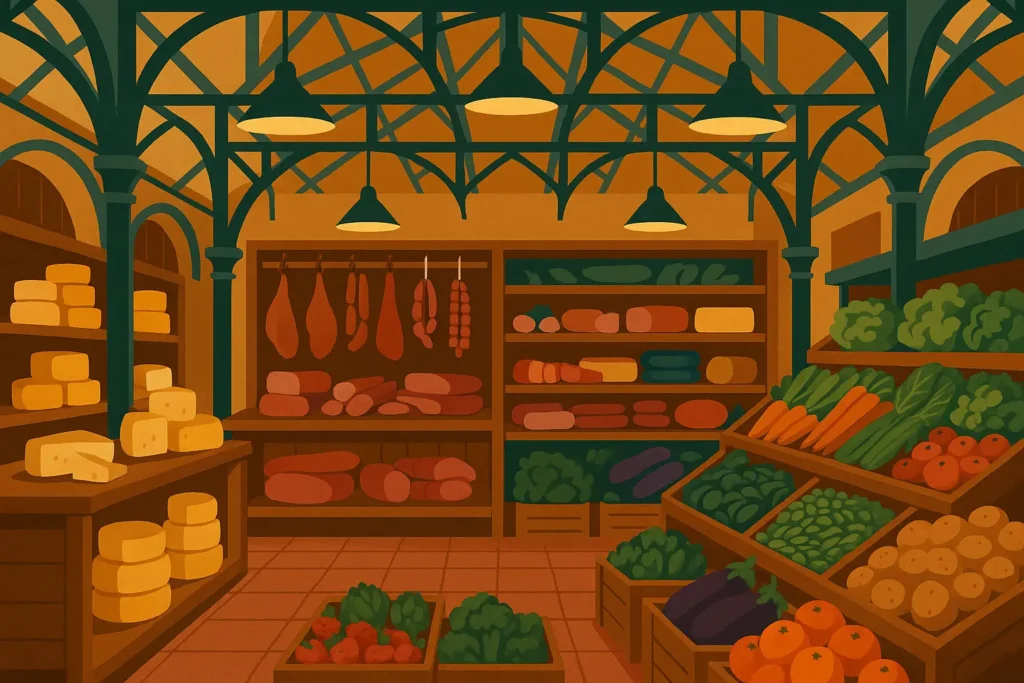
Cooking workshops with professional chefs teach traditional techniques for regional specialties. Learning to prepare coq au vin, quenelles, or tarte à la praline provides hands-on cultural education.
Michelin-starred restaurants showcase Lyon’s culinary evolution, where traditional techniques meet contemporary innovation. Reservations require advance planning, especially for legendary establishments.
Day trips to Beaujolais wine region complement culinary experiences with local wine education. The region’s proximity makes half-day visits feasible while adding wine knowledge to food appreciation.
That cozy bistro you found? It probably closes from 2-7 PM. Plan accordingly. The city’s compact size makes walking between food experiences pleasant, while excellent public transportation provides easy access to markets and restaurants throughout different neighborhoods.
Budget €200-350 daily per person for quality accommodations, market tours, cooking classes, and restaurant meals ranging from bouchons to Michelin-starred establishments.
14. Dordogne Truffle & Foie Gras Experience (8 Days)
Dordogne’s culinary specialties require seasonal timing for optimal experiences. Truffle season (October-March) provides opportunities for hunting expeditions with trained dogs and direct producer purchases.
Sarlat-la-Canéda serves as your medieval base, with its perfectly preserved architecture providing atmospheric backdrop for market visits and restaurant dining featuring regional specialties.
Truffle hunting expeditions offer unique cultural experiences, following trained dogs through oak forests while learning about these prized fungi’s mysterious growing requirements. Direct purchases from hunters provide exceptional quality.
Foie gras production visits reveal traditional techniques while addressing ethical considerations. Many producers offer tastings paired with local wines, creating comprehensive gastronomic education.
Prehistoric cave visits add cultural depth beyond culinary focus. Lascaux IV’s replica paintings and Font-de-Gaume’s original art provide historical context for the region’s long human habitation.
Château accommodations enhance the medieval atmosphere while providing luxury amenities. Many properties offer cooking classes featuring regional ingredients and traditional techniques.
Market visits in Sarlat and surrounding villages provide ingredient sourcing opportunities and cultural immersion. Saturday markets offer the most extensive selections and vibrant atmospheres.
Budget €250-400 daily per person for château accommodations, truffle experiences, cave visits, and fine dining featuring regional specialties.
Adventure & Outdoor Itineraries
These active itineraries emphasize France’s diverse outdoor recreation opportunities from Alpine cycling challenges to Mediterranean beach culture. Designed for travelers seeking physical adventure and natural beauty, these routes require good fitness levels and appropriate gear while providing unforgettable experiences in France’s most spectacular natural settings.
15. Tour de France Cycling Adventure (14 Days)
This ultimate cycling challenge follows legendary Tour de France stages through France’s most spectacular mountain regions. Professional support services including mechanics, gear transport, and nutrition planning make this demanding adventure accessible to serious cyclists.
Phase 1 (Days 1-5) tackles Alpine challenges based in Chamonix and Annecy. Col des Montets and Col de la Forclaz provide iconic climbs with Switzerland border views, while Lake Annecy offers recovery rides through stunning scenery.
Mont Ventoux conquest represents the tour’s emotional centerpiece. This “Giant of Provence” challenges even experienced cyclists with its 1,600-meter elevation gain and exposed summit conditions that have created Tour de France legends.
Phase 2 (Days 6-9) explores Provence’s rolling terrain with Luberon village stops and wine tasting recovery periods. The Mediterranean climate provides ideal cycling conditions while cultural stops add depth beyond physical challenges.
Phase 3 (Days 10-14) concludes in the Pyrenees with legendary climbs including Col du Tourmalet and Col d’Aspin. These Tour de France classics test climbing abilities while providing spectacular mountain scenery.
Advanced cycling experience becomes essential, with ability to climb 1,500+ meters elevation on challenging days. High-end road bikes are provided, though experienced cyclists often prefer bringing personal equipment.
Cyclist-friendly accommodations offer bike storage, early breakfast options, and massage services. Professional guides provide route knowledge, safety support, and mechanical assistance throughout the journey.
Budget €400-600+ daily per person for comprehensive support services, quality accommodations, professional guidance, and equipment provision.
16. French Riviera Beach & Culture (10 Days)
The French Riviera combines Mediterranean relaxation with sophisticated culture, creating the perfect balance for diverse interests. Nice serves as your cultural base, with its Promenade des Anglais and world-class museums providing excellent introduction to Riviera lifestyle.
Beach culture varies dramatically between destinations. Nice’s public beaches offer democratic access, while Saint-Tropez’s exclusive beach clubs provide luxury experiences with premium pricing and celebrity spotting opportunities.
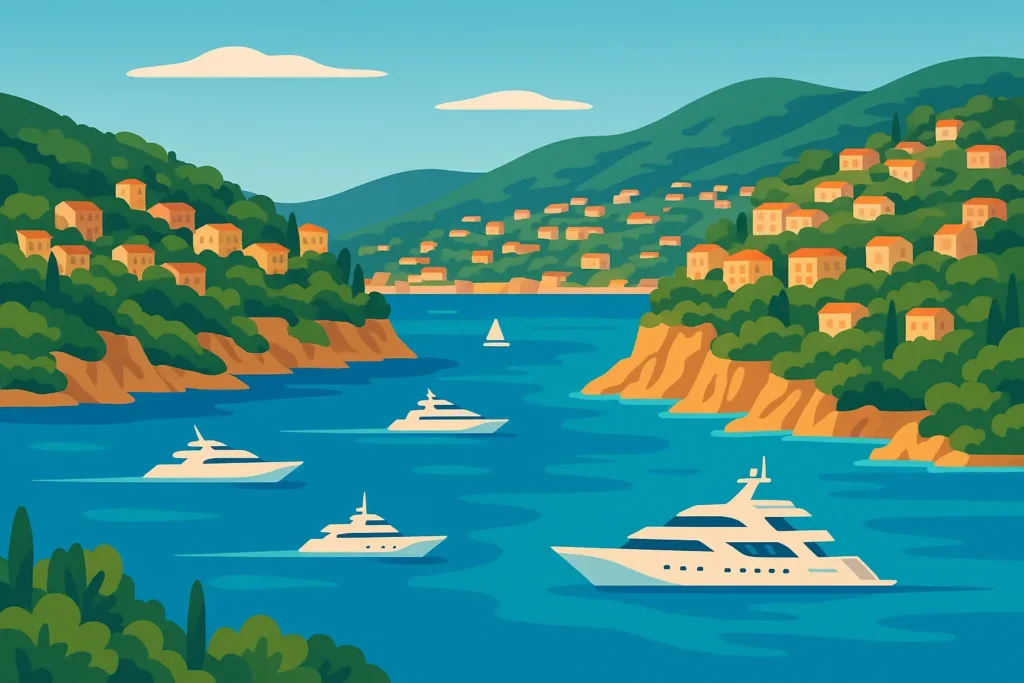
Art museums showcase the region’s creative heritage. Matisse and Chagall museums in Nice, Picasso Museum in Antibes, and Fondation Maeght in Saint-Paul-de-Vence reveal how Mediterranean light attracted legendary artists. Everyone goes to Monet’s garden, but here’s what they don’t tell you – go early or late to avoid the crowds.
Monaco represents ultimate Riviera glamour, with its Monte Carlo Casino, luxury yachts, and Formula 1 circuit creating an atmosphere of wealth and excitement. Day trips by train provide easy access without accommodation costs.
Mountain villages offer cultural contrast to coastal glamour. Èze’s medieval streets and exotic gardens provide spectacular coastal views, while Saint-Paul-de-Vence’s artistic heritage adds cultural depth.
Yacht excursions reveal the coastline’s most beautiful perspectives while providing access to secluded coves and swimming opportunities. Half-day trips offer excellent value for unique experiences.
Transportation combines excellent train connections between major cities with rental car flexibility for mountain village access and beach hopping.
Budget €250-450 daily per person depending on accommodation choices and beach club preferences, with luxury options significantly higher.
17. Corsica Island Paradise (8 Days)
Corsica offers France’s most dramatic natural scenery, with mountains rising directly from Mediterranean waters creating spectacular contrasts. The island’s unique culture blends French administration with Italian influences and fierce Corsican independence.
Hiking opportunities range from gentle coastal walks to challenging GR20 sections. This legendary trail crosses the island’s mountainous spine, offering some of Europe’s most spectacular but demanding hiking. Day sections provide taste of this epic route without full commitment.
Coastal exploration reveals pristine beaches and dramatic cliffs. The Calanques de Piana’s red granite formations create otherworldly landscapes, while Bonifacio’s limestone cliffs and medieval citadel provide historical drama.
Cultural immersion includes traditional Corsican cuisine featuring wild boar, chestnuts, and local cheeses. The island’s wines, particularly from Patrimonio, offer unique expressions of Mediterranean terroir.
Ferry transportation from mainland France adds adventure while rental cars become essential for accessing remote beaches and mountain trailheads. The island’s winding roads require careful driving but reveal spectacular scenery.
Accommodation ranges from luxury coastal resorts to mountain refuges, depending on your activity focus. Coastal properties offer beach access and water sports, while mountain lodges provide hiking base camps.
Summer provides perfect beach weather but crowded conditions, while spring and fall offer ideal hiking temperatures with fewer tourists.
Budget €180-320 daily per person including ferry transportation, rental car, accommodations, and activities, with significant variations based on luxury level and season.
18. Pyrenees Mountain Adventure (9 Days)
The Pyrenees offer authentic mountain experiences without Alpine crowds or prices. This French-Spanish border region combines dramatic peaks with unique Basque culture and thermal spa traditions.
Pau provides your cultural foundation with its château and English heritage, while serving as gateway to mountain valleys. The city’s elegant boulevards and mountain views create pleasant urban base.
Lourdes adds spiritual dimension with its famous pilgrimage site, regardless of religious beliefs. The town’s international atmosphere and mountain setting provide cultural interest.
Mountain hiking ranges from gentle valley walks to challenging peak ascents. The GR10 trail provides excellent day hiking opportunities with spectacular Pyrenean views and mountain hut accommodations.
Hot springs offer perfect recovery from hiking activities. Cauterets and Bagnères-de-Bigorre provide thermal spa treatments in mountain settings, combining relaxation with scenic beauty.
Basque culture becomes prominent near the Atlantic coast. Saint-Jean-de-Luz’s fishing heritage, unique architecture, and distinctive cuisine provide cultural contrast to mountain experiences.
Medieval villages such as Saint-Bertrand-de-Comminges offer historical depth, while their mountain settings create dramatic photographic opportunities.
Transportation requires rental car for accessing mountain valleys and remote villages. Mountain weather changes rapidly, requiring flexible planning and appropriate gear.
Budget €160-280 daily per person for comfortable accommodations, spa treatments, hiking equipment, and regional dining experiences.
Cultural & Historical Deep Dives
These specialized itineraries focus intensively on France’s rich historical and cultural heritage through themed explorations. From medieval architecture to WWII history, these routes provide deep educational experiences for travelers seeking to understand France’s complex past and its influence on contemporary culture.
19. Medieval France Journey (11 Days)
Medieval France comes alive through perfectly preserved fortified cities and architectural masterpieces. Carcassonne provides your dramatic introduction, with its double-walled fortifications creating Europe’s most complete medieval city.
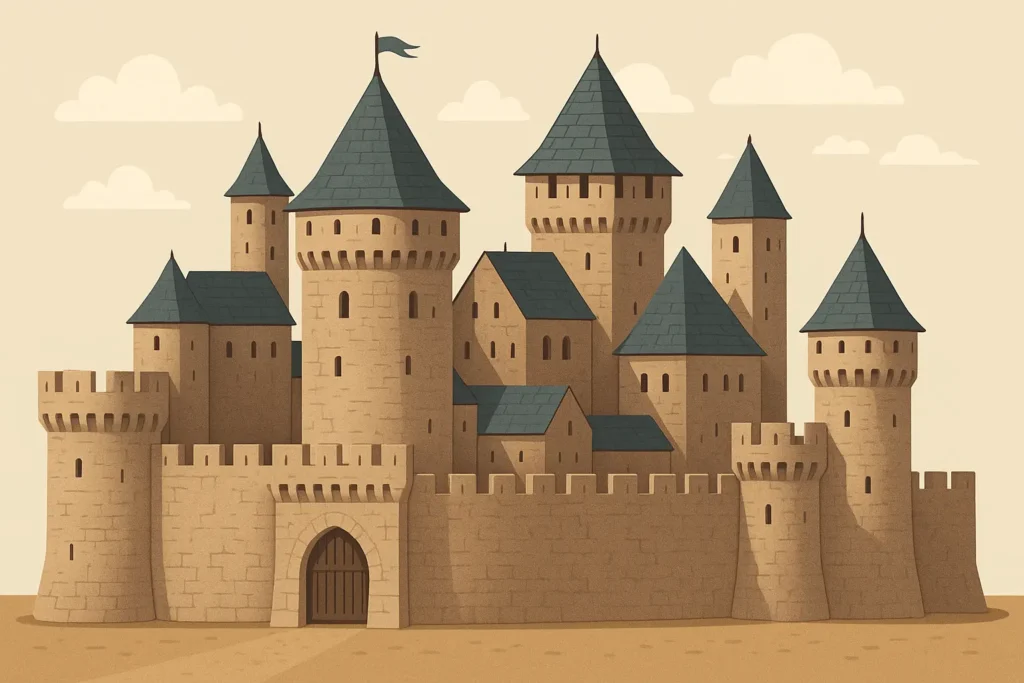
Albi’s red-brick cathedral and Toulouse-Lautrec Museum combine religious architecture with artistic heritage. The city’s unique building materials create distinctive visual character unlike other French medieval sites.
Rocamadour’s cliff-side pilgrimage site demonstrates medieval religious devotion, with its sanctuary buildings clinging impossibly to limestone cliffs. The dramatic setting enhances spiritual atmosphere regardless of personal beliefs.
Sarlat-la-Canéda represents medieval urban planning perfection, with its golden stone buildings and narrow streets creating atmospheric evening walks. The Saturday market continues centuries-old traditions.
Bourges’ Gothic cathedral showcases medieval architectural evolution, while the city’s merchant houses reveal medieval commercial prosperity. The contrast between religious and secular architecture provides comprehensive medieval understanding.
Rental car transportation becomes essential for accessing smaller villages and rural sites that public transportation cannot reach. Many medieval sites require significant walking on uneven surfaces.
Specialized historical guides enhance appreciation through detailed architectural explanations and historical context that brings ancient stones to life.
Budget €200-320 daily per person for comfortable accommodations, rental car, guide services, and regional dining in atmospheric medieval settings.
20. Art Lover’s France (10 Days)
France’s artistic heritage extends far beyond Paris museums, though the capital provides essential foundation. The Louvre and Orsay require multiple visits for comprehensive appreciation, while smaller museums offer intimate experiences with specific movements.
Giverny’s Monet gardens reveal Impressionism’s natural inspiration, with water lilies and Japanese bridges creating living artworks. Seasonal timing affects garden beauty, with spring through fall providing optimal experiences.
Arles follows Van Gogh’s footsteps through locations that inspired his most famous works. The yellow house site, café terraces, and surrounding countryside provide context for understanding his artistic development.
Nice’s Matisse and Chagall museums showcase how Mediterranean light influenced modern art, while the city’s vibrant colors continue inspiring contemporary artists.
Saint-Paul-de-Vence’s Fondation Maeght presents exceptional modern art collections in architectural settings designed specifically for artistic display.
Private museum tours provide expert commentary and behind-the-scenes access that enhances appreciation beyond self-guided visits. Many offer special exhibitions not available to general public.
Artist studio visits, where available, provide intimate insights into creative processes and working environments that shaped artistic development.
Transportation combines excellent train connections with rental car flexibility for accessing rural sites associated with specific artists.
Budget €250-400 daily per person for quality accommodations, museum entries, private tours, and cultural dining experiences.
21. WWII History Trail (8 Days)
France’s WWII history requires sensitive exploration with expert guidance for full appreciation. Paris provides foundation through Liberation route sites and Resistance museums that establish historical context.
Normandy’s D-Day beaches represent the war’s turning point, with Omaha Beach, American Cemetery, and Pointe du Hoc providing emotional connections to historical events. The scale of Allied operations becomes apparent through site visits.
Resistance sites throughout France reveal civilian courage and sacrifice during occupation. Many locations remain unmarked, requiring local knowledge for identification and historical context.
Liberation route following Allied advances from Normandy to Paris traces the campaign that freed France. Many small towns maintain memorials and museums commemorating their liberation experiences.
Planning meaningful historical journeys requires sensitivity and expert guidance to properly honor those who sacrificed for freedom, much like planning meaningful memorial services.
Specialized historical guides become essential for understanding complex political and military situations. Many offer veteran stories and personal accounts that bring historical events to life.
Museums range from major installations such as the Caen Memorial to small local collections maintained by communities. Each provides different perspectives on wartime experiences.
Battlefield tours require significant walking on varied terrain, though most sites provide accessibility options for mobility-limited visitors.
Budget €180-300 daily per person for accommodations, specialized guide services, museum entries, and memorial site visits.
22. Literary France Exploration (9 Days)
French literary heritage extends throughout the country, with specific locations inspiring famous works and housing legendary writers. Paris provides foundation through literary café culture and author house museums.
Literary walks through Saint-Germain reveal café society where Sartre, Beauvoir, and Hemingway created their masterworks. Many establishments maintain literary atmospheres and author memorabilia.
Proust’s Combray (Illiers-Combray) brings “In Search of Lost Time” to life through preserved locations and museum displays. The small town’s intimate scale makes literary connections particularly vivid.
George Sand’s Nohant estate reveals 19th-century literary salon culture, with Chopin connections adding musical dimensions to literary heritage. The preserved interiors provide authentic period atmosphere.
Hugo’s exile locations and Paris associations trace the author’s complex relationship with French politics and society. Notre-Dame connections become particularly poignant given recent restoration efforts.
Bookshop visits include legendary establishments such as Shakespeare and Company, where literary traditions continue through contemporary authors and cultural events.
Author house museums provide intimate insights into creative processes and living conditions that influenced literary development.
Literary festivals and cultural events, when available, offer contemporary connections to historical literary heritage.
Budget €200-320 daily per person for quality accommodations, museum visits, guided literary walks, and cultural dining in atmospheric locations.
Family-Friendly Itineraries
These specially-designed itineraries balance adult interests with child-friendly activities and practical family travel considerations. From interactive museums to château adventures, these routes provide educational entertainment while maintaining realistic pacing for multi-generational groups.
23. France Family Fun Adventure (10 Days)
Family travel requires careful balance between adult interests and child engagement. Paris (days 1-4) combines iconic sightseeing with Disneyland Paris magic, though the theme park deserves full-day commitment for maximum enjoyment.
Interactive museum experiences work better than traditional art galleries for maintaining child interest. The Cité des Sciences and Musée de l’Armée offer hands-on exhibits that engage young minds while providing educational value.
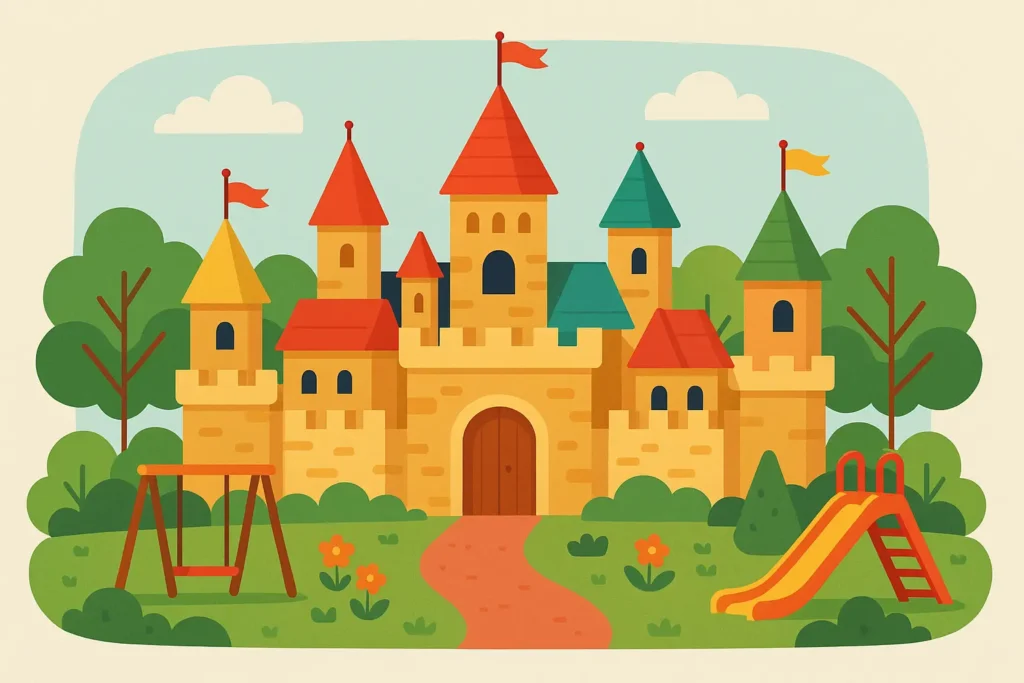
Loire Valley châteaux (days 5-6) become adventure playgrounds when presented as royal castles with treasure hunts and costume activities. Many properties offer family-specific tours and interactive exhibits.
Dordogne caves (days 7-8) provide natural wonder and prehistoric education. Lascaux IV’s replica paintings and interactive displays make ancient history accessible to children while maintaining scientific accuracy.
Beach time (days 9-10) allows family relaxation and play opportunities. Atlantic coast beaches offer safer swimming conditions than Mediterranean alternatives, with extensive sandy areas for castle building.
Family-friendly accommodations include vacation rentals with kitchens for meal flexibility and hotels with connecting rooms or family suites. Swimming pools become essential for evening entertainment.
Transportation considerations include rental cars with adequate luggage space and entertainment systems for longer drives between destinations.
Budget €200-350 daily for family of four including family accommodations, attraction entries, meals, and transportation with flexibility for spontaneous treats.
24. Educational France for Teens (12 Days)
Teenage travelers require different approaches than younger children, with educational content balanced by social opportunities and independence. Paris (days 1-4) provides urban sophistication with museum workshops and language exchange opportunities.
Historical sites become more engaging through interactive approaches. WWII history, medieval architecture, and royal heritage connect with teenage interests when presented through personal stories and dramatic events.
Cooking classes provide hands-on cultural education while developing practical skills. Regional specialties and market visits create authentic cultural connections beyond tourist experiences.
Language immersion opportunities through local interactions, café visits, and cultural activities build confidence while providing practical communication skills.
Art workshops and creative activities allow personal expression while learning about French artistic traditions. Many museums offer teen-specific programs during school holidays.
Cultural performances including theater, music, and festivals provide contemporary cultural connections alongside historical education.
Social opportunities through youth hostels, group activities, and structured programs allow interaction with international peers while maintaining safety supervision.
Independence balance allows supervised exploration and decision-making opportunities that build confidence while ensuring safety and educational value.
Budget €180-280 daily per teen including accommodations, educational activities, meals, and supervised cultural experiences with some independence allowances.
25. Multi-Generational France (14 Days)
Multi-generational travel requires careful consideration of mobility limitations, varied interests, and different energy levels. Slower pacing with maximum 4 hours of activities daily prevents exhaustion while allowing meaningful experiences.
Paris (days 1-4) emphasizes accessible attractions with elevator access and minimal walking requirements. Seine cruises provide sightseeing without physical demands, while café culture allows rest periods with cultural immersion.
Loire Valley (days 5-7) features château visits with tram tours and accessible gardens. Many properties offer golf cart transportation and wheelchair-accessible routes through main areas.
Provence (days 8-10) focuses on scenic drives, wine tastings (seated), and village visits by bus rather than walking tours. Hotel spa treatments provide relaxation opportunities for all generations.
French Riviera (days 11-14) combines train transportation (no walking required) with beach relaxation and cultural visits to accessible museums and attractions.
Planning multi-generational travel requires careful consideration of different needs, mobility levels, and interests to ensure everyone enjoys the experience, similar to planning multi-generational wedding celebrations.
Accommodations prioritize ground-floor rooms, elevator access, and comfortable common areas where family members can gather. Many hotels offer medical assistance and pharmacy information.
Transportation uses private coaches with comfortable seating rather than public transport, with frequent stops and flexible scheduling based on group energy levels.
Medical considerations include on-call assistance, medication reminders, and knowledge of local healthcare facilities for emergency situations.
Budget €300-500+ daily per person for luxury accommodations, private transportation, accessible tours, and comprehensive support services that ensure comfort for all generations.
Detailed Analysis by Travel Considerations
This comprehensive analysis examines how different travel factors influence France itinerary selection and success. By understanding how duration, budget, interests, and group dynamics affect your French adventure, you can make informed decisions that align your chosen itinerary with your specific circumstances.
Duration and Timing Impact Assessment
Short trips of 4-7 days work best when you accept limitations and focus intensively on specific experiences. The Paris & Versailles Classic succeeds because it doesn’t attempt comprehensive France coverage, instead providing deep urban cultural immersion with manageable scope.
Shoulder seasons (April-May, September-October) optimize short trip value through pleasant weather, manageable crowds, and full attraction availability. Summer’s long daylight hours help maximize sightseeing time, but crowds and heat can create stress that undermines short trip enjoyment.
Medium-length adventures of 8-10 days provide the sweet spot for first-time visitors, allowing 2-3 regional experiences without constant movement stress. The France Greatest Hits itinerary succeeds because high-speed rail connections minimize travel time while maximizing destination experiences.
| Season | Weather | Crowds | Prices | Best Activities | Considerations |
|---|---|---|---|---|---|
| Spring (Mar-May) | Mild, rainy | Moderate | Medium | Gardens, hiking | Variable weather |
| Summer (Jun-Aug) | Warm, sunny | Heavy | High | Beaches, festivals | Crowded, hot |
| Fall (Sep-Nov) | Cool, pleasant | Light | Medium | Wine harvest, culture | Shorter days |
| Winter (Dec-Feb) | Cold, wet | Minimal | Low | Museums, Christmas markets | Limited hours |
Regional weather variations become more significant for longer trips crossing multiple climate zones. Mediterranean timing differs from Alpine considerations, requiring flexible packing and activity planning.
Extended trips of 11+ days allow for spontaneous discoveries and deeper cultural connections that shorter visits cannot accommodate. You can revisit favorite locations, explore off-the-beaten-path destinations, and develop relationships with local people that enhance cultural understanding.
Budget and Travel Style Evaluation
Here’s what you’re looking at money-wise: If you want luxury (think château hotels and Michelin stars), budget around $500-800+ daily per person. The Romantic France Honeymoon and Champagne Region Luxury itineraries justify premium pricing through unique access and exceptional service.
For a comfortable trip with nice hotels and good meals, $200-400 works well. Most regional France itinerary options work well at this budget level, providing excellent value through boutique accommodations, local restaurants, small-group tours, and regional transportation.
Traveling on a shoestring? You can absolutely do France for $75-150 daily per person. Hostels, vacation rentals, self-catering, public transportation, and free attractions create affordable adventures without sacrificing cultural immersion.
Transportation choices dramatically impact budgets. High-speed trains cost more than regional services but save time. Rental cars add flexibility but include fuel, parking, and insurance costs. Guided tours eliminate logistics stress but increase per-day expenses.
Interest and Activity Alignment Analysis
Cultural enthusiasts thrive on museum-heavy itineraries, architectural tours, and historical site exploration. The Art Lover’s France and Medieval France Journey France itinerary options provide comprehensive cultural education through expert guidance and carefully selected sites.
Food and wine lovers find paradise in specialized culinary itineraries, though every French trip can incorporate gastronomic experiences. The key lies in balancing structured food experiences with spontaneous culinary discoveries.
Active travelers need itineraries emphasizing outdoor activities, physical challenges, and natural beauty. The Tour de France Cycling Adventure and French Alps Adventure require good fitness levels but provide unforgettable physical achievements alongside scenic beauty.
Relaxation seekers prefer slower-paced itineraries with spa treatments, scenic drives, and leisurely meals. Provence Immersion and French Riviera France itinerary options emphasize lifestyle over sightseeing, allowing stress reduction and cultural absorption.
Photography enthusiasts benefit from itineraries emphasizing scenic beauty, golden hour timing, and iconic locations. Sunrise at Mont-Saint-Michel or sunset over lavender fields require specific timing but create portfolio-worthy images.
Shopping enthusiasts need itineraries including fashion districts, artisan workshops, and local markets. Paris provides luxury shopping, while regional France itinerary options offer unique crafts and local specialties unavailable elsewhere.
Group Dynamics and Logistics Considerations
Solo travelers benefit from structured itineraries with built-in social opportunities through cooking classes, wine tours, or group activities. The Art Lover’s France itinerary provides natural conversation starters and shared interests with fellow travelers.
Couples seek romantic settings, intimate experiences, and shared adventures that create lasting memories. Privacy becomes more important than group activities, with emphasis on special touches and exclusive access.
Families require kid-friendly accommodations, age-appropriate activities, and realistic pacing that prevents meltdowns. Teenagers will complain about the walking. Bribe them with crêpes. The France Family Fun Adventure balances adult interests with child engagement through interactive experiences and flexible scheduling.
Friend groups need itineraries balancing varied interests while providing group-friendly accommodations and activities. Wine regions work well for groups, offering shared experiences with individual tasting preferences.
Practical Logistics Assessment
Language barriers remain minimal in major tourist areas, though rural regions may require more French language skills or local guide assistance. Most France itinerary options work well for English-only speakers with basic preparation.
Transportation complexity varies significantly between itineraries. Paris-based trips use excellent public transport, while regional deep-dives often require rental cars for full access to smaller villages and rural attractions.
French service isn’t rude – it’s just different. Don’t expect American-style ‘how’s everything tasting?’ check-ins. French bathrooms are… different. Don’t say I didn’t warn you.
Cultural preparation needs increase for specialized itineraries. Medieval France or WWII History Trail benefit from advance reading and historical context that enhances on-site experiences.
Technology integration through translation apps, navigation systems, and reservation platforms simplifies logistics but shouldn’t replace human connections and spontaneous discoveries that define memorable travel.
Weather contingency planning becomes essential for outdoor-focused itineraries, requiring flexible scheduling and appropriate gear for changing conditions.
How Bridesmaid for Hire Can Help Plan Your Perfect French Adventure
Look, I spend my days managing wedding chaos – keeping families happy, solving problems on the fly, making sure everything runs smoothly even when the flowers are wrong and Uncle Bob is drunk. Planning a France trip? Same skill set, different country.
Just as planning a wedding requires attention to countless details, logistics coordination, and stress management, organizing the perfect France itinerary demands similar skills in managing complex moving parts, group dynamics, and unexpected challenges. After spending over 8 years helping couples navigate wedding complexities – from managing family dynamics to coordinating vendors and timelines – I understand the skills needed to transform overwhelming planning into seamless execution.
I’ve planned dozens of France trips, and here’s what I’ve learned: something will go wrong. Your train will be delayed, it’ll rain on your château day, or that restaurant you’ve been dreaming about will be closed for vacation. Roll with it – some of my best travel stories come from Plan B moments.
Whether you’re organizing a romantic Provence honeymoon, coordinating a multi-generational Loire Valley trip, or planning a friend group’s Burgundy wine adventure, the challenges mirror those faced in wedding planning.
Whether you’re managing a wedding or a whirlwind trip abroad, use our Vacation Planner to turn chaos into calm.
You need someone who can anticipate problems before they arise, offer unbiased advice when group dynamics get complicated, and serve as your go-to person for everything from restaurant reservations to last-minute France itinerary changes. The same skills that make an exceptional professional bridesmaid – being a calming force during stressful situations, having creative solutions for unexpected problems, and knowing how to keep everyone happy while managing complex logistics – are exactly what you need when navigating France’s beautiful complexity.
Just as professional bridesmaid services provide comprehensive wedding support, having knowledgeable support who understands French culture, logistics, and hidden gems can transform your trip from stressful to seamless.
Both weddings and dream vacations are about creating unforgettable memories with the people you care about most. If you want someone in your corner who’s used to making magic happen while keeping everyone sane, let’s chat.
Final Thoughts
Choosing the perfect France itinerary isn’t about finding the single “best” option – it’s about discovering the route that speaks to your specific travel dreams and practical realities. Whether you’re drawn to Paris’s urban sophistication, Provence’s lavender-scented countryside, or Burgundy’s prestigious vineyards, France rewards travelers who plan thoughtfully while remaining open to unexpected discoveries.
The 25 itineraries we’ve explored represent starting points rather than rigid prescriptions. Your perfect French adventure might combine elements from multiple routes, extend certain regions that capture your imagination, or focus intensively on specific interests that ignite your passion. The beauty of France lies in its incredible diversity – from Alpine peaks to Mediterranean beaches, medieval villages to modern cities, world-class museums to family-owned wineries.
Similar to how couples customize their wedding celebrations to reflect their unique love story, your France itinerary should be tailored to your specific interests, timeline, and travel style for maximum satisfaction.
Remember that the most memorable travel experiences often come from moments you can’t plan: conversations with local vintners, stumbling upon village festivals, or discovering hidden restaurants that become lifelong favorites. Build flexibility into whatever France itinerary you choose, allowing time for spontaneous exploration alongside your planned activities.
Bottom line: France is forgiving. Even if you mess up the planning, you’ll still eat amazing food, see beautiful things, and come home with great stories. Just don’t try to do everything – that way lies madness.
France has been welcoming travelers for centuries, developing an infrastructure and cultural openness that makes even complex itineraries manageable with proper preparation. Whether this is your first French adventure or your fifteenth, the country continues revealing new layers of beauty, culture, and joie de vivre that justify its position as the world’s most beloved destination.
You’ll probably fall in
You’ll probably fall in love with at least three different villages, discover your new favorite wine region, and leave already planning your return trip. That’s the magic of France – it doesn’t just meet your expectations, it expands them.
Whether you’re managing a wedding or a whirlwind trip abroad, use our Vacation Planner to turn chaos into calm.
1-800-BRIDESMAID
The Newlywed
Card Game
something extra to love
Read the weekly newsletter from Bridesmaid for Hire, 1-800-Bridesmaid, to hear about real stories, from strangers, who need advice on love, life, friendship, and so much more.
Looking for the perfect wedding gift for someone you adore? Grab The Newlywed Card Game. It's a fun and interactive game they can play on their honeymoon or future date nights.
